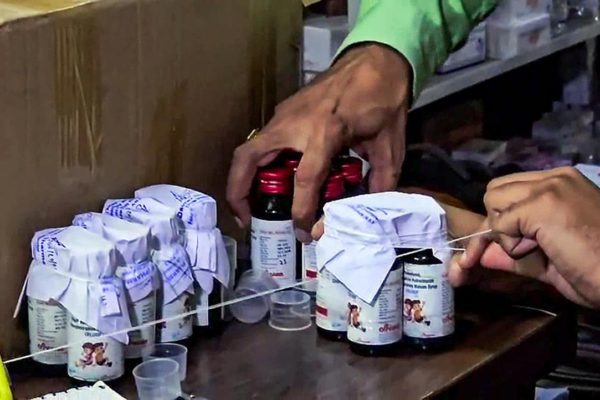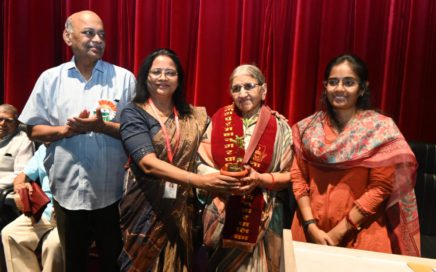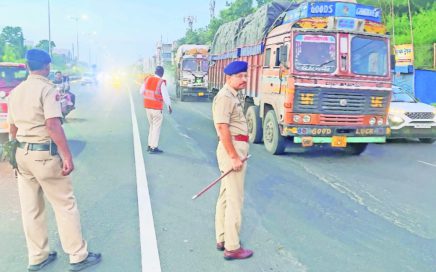
Nagpur: The death toll in the toxic cough syrup tragedy climbed to 15 after an 18-month-old girl, Dhani Dahriya, from Chhindwara (Madhya Pradesh), succumbed late Monday night at Government Medical College and Hospital (GMCH), Nagpur.
Confirming the development, Dr. Manish Tiwari, Head of the Paediatrics Department at GMCH, said the toddler was in a deep coma despite partial recovery of kidney function. “Dhani had slipped into coma due to severe brain damage caused by acute kidney failure following intake of the toxic cough syrup,” he said.
Her father, Naveen Dahriya, said Dhani had started passing urine, indicating improvement, but her urea levels remained dangerously high. “She was showing signs of recovery, but suddenly collapsed,” he added.
The tragedy, which has so far claimed 15 young lives from Chhindwara and left several others under 12 years battling for survival, was traced to ‘Coldrif’, a cough syrup containing 48.6% diethylene glycol (DEG), a lethal industrial solvent used in brake fluids and antifreeze. The contamination was confirmed by a Tamil Nadu laboratory.
Fomepizole: The unexpected lifesaver
As conventional treatment failed and children continued to deteriorate, GMCH doctors turned to Fomepizole, a drug typically used to treat methanol or ethylene glycol poisoning seen in hooch tragedies. The decision came after extensive consultation between GMCH’s paediatricians and experts across India.
“Fomepizole worked as an effective antidote against DEG toxicity,” Dr. Tiwari confirmed, adding that the drug’s timely administration prevented further deaths. The treatment protocol has since been shared with Chhindwara health authorities and private hospitals, instructing them to start Fomepizole therapy within 18 hours of suspected poisoning.
The first alarm was raised in August, when three children from Chhindwara died within hours of admission at GMCH. The sudden fatalities prompted hospital authorities to alert the Nagpur Municipal Corporation’s Metropolitan Surveillance Unit (MSU), which in turn notified the National Centre for Disease Control (NCDC).
A joint Central and State team of experts visited Chhindwara and Nagpur to investigate. Samples collected from patients and their surroundings were tested at NIV Pune and NEERI Nagpur, but early results revealed no infectious cause.
Doctors then began tracing a common factor among the victims and discovered that all had been prescribed Coldrif syrup by the same doctor. Once DEG poisoning was confirmed, the mystery behind the series of kidney failures and brain damage cases was resolved.
At GMCH, six children have so far died from renal failure, while six others remain under treatment, four of them unable to pass urine and two still in deep coma. “The DEG levels in the syrup were almost 500 times higher than permissible limits,” Dr. Tiwari said.
Authorities are now closely monitoring all survivors and coordinating with health teams in Madhya Pradesh and Maharashtra to prevent further tragedies.















